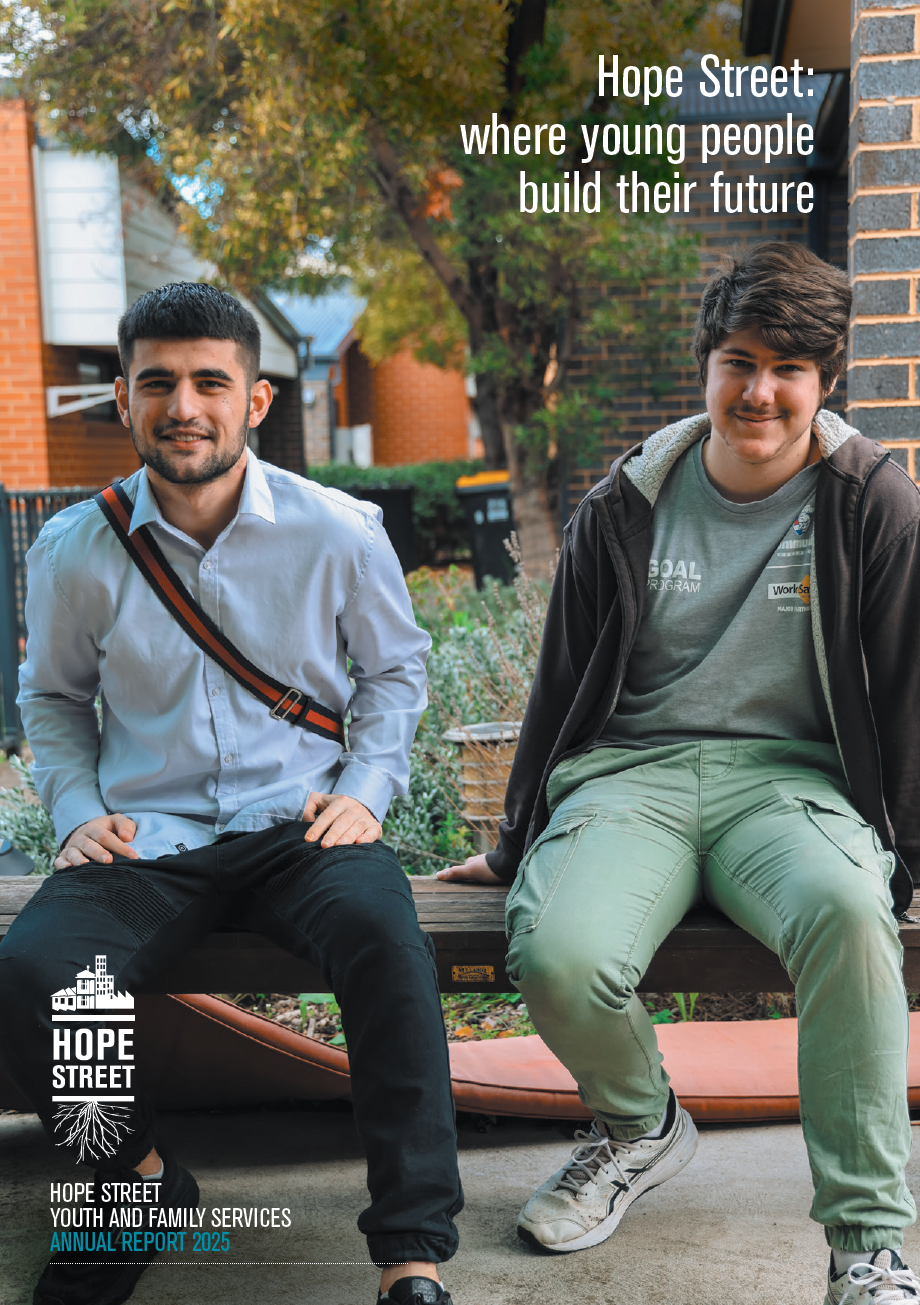Ruby, proud Wemba Wemba, Yorta Yorta and Mutthi Mutthi woman, is on a meaningful journey through her placement at Hope Street Thomastown. Her cadetship combines academic pursuits with practical experience, providing financial support and a unique opportunity to service her community.
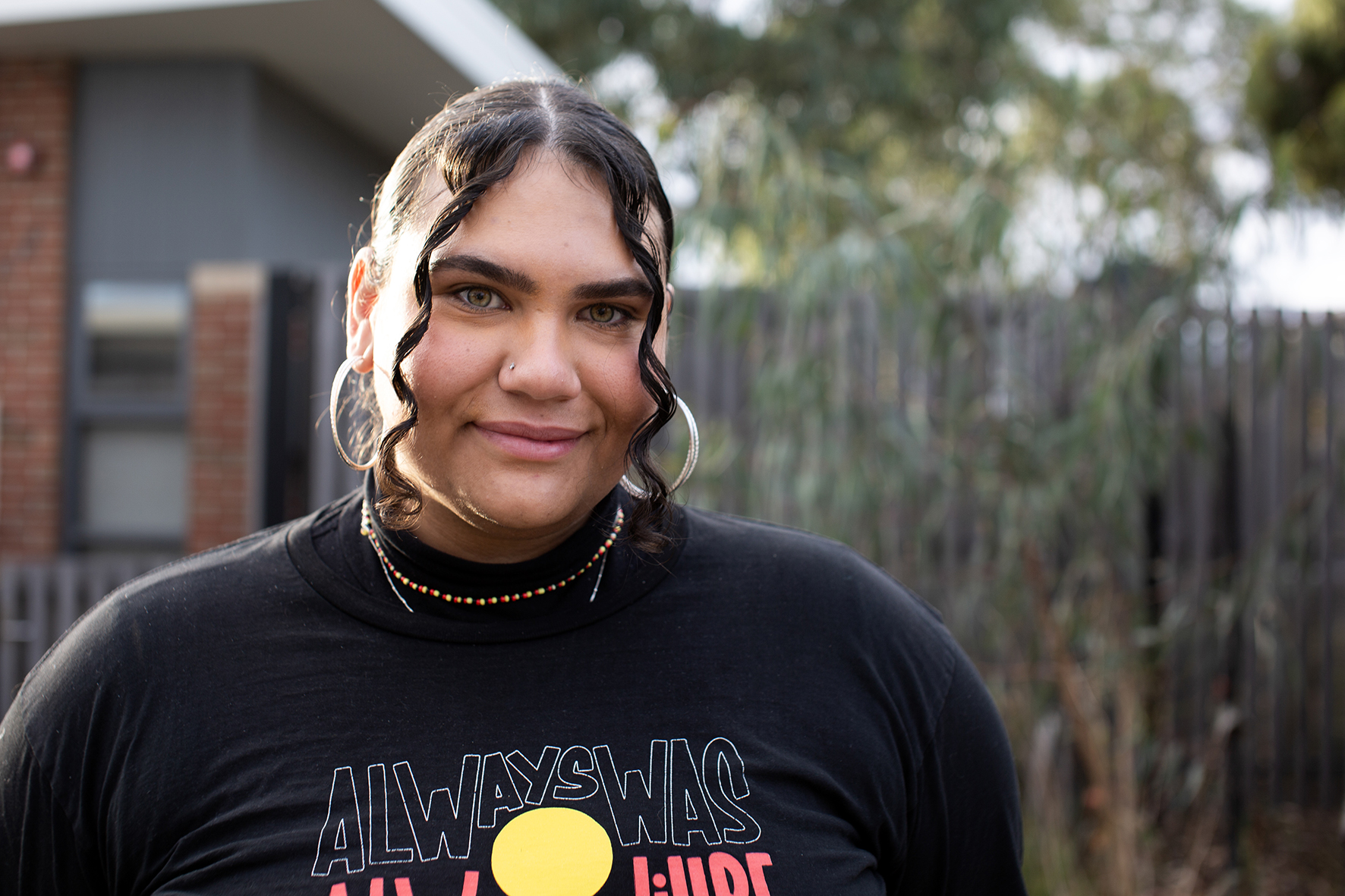
Ruby’s decision to pursue a cadetship was driven by the need to fulfil a placement requirement for her Bachelor of Youth Work and Youth Studies at RMIT.
She saw the Warumilang Program Cadet program as an ideal way to merge her placement needs with financial support.
I thought that combining them was a great option. That way financially I would be supported.
That was a big thing for me, being able to manage financially while completing a placement.
She discovered the program after completing her last placement for her degree. Originally placed at Hope Street’s Brunswick location. She soon realised that moving to the Thomastown Refuge would be a better fit.
I am now at Thomastown and I am really enjoying it. I have had the opportunity to get out and about to meet with clients and case managers. They have really showed me the ropes.
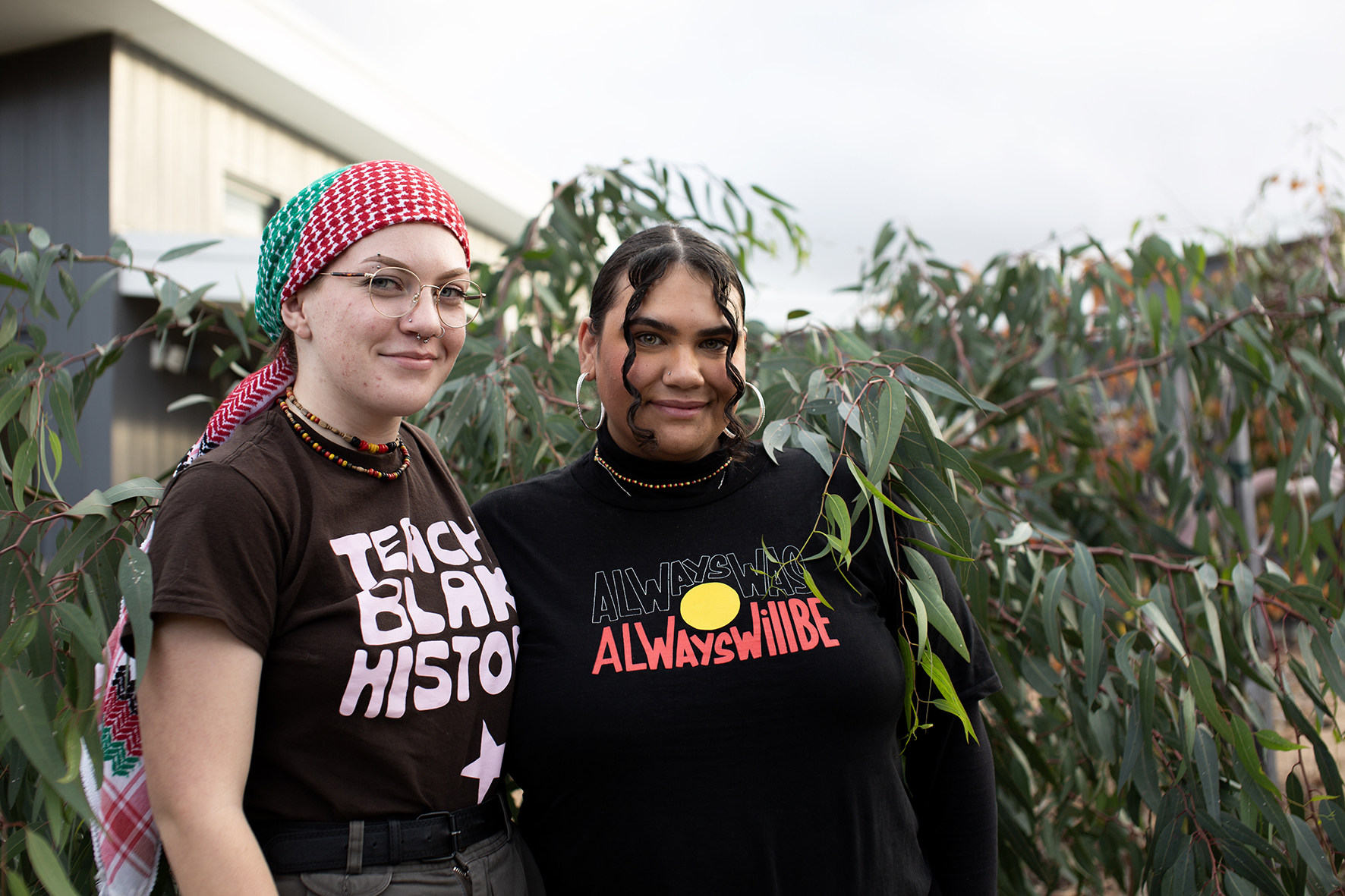
Ruby has found a passion for working in long-term transitional services through her cadetship. The opportunity to meet young people who have experienced homelessness regularly has allowed her to build rapport and trust, essential elements in effective youth work.
I have got to meet young people regularly over and over again – building rapport and a sense of trust with them.
One of Ruby’s biggest challenges has been balancing her job responsibilities with the cultural load.
Especially coming into workplaces where you are educating everyone and introducing them to cultural frameworks.
She has found significant support from the Indigenous Centre at RMIT. Where she serves as a First Nations representative, advocating for her community.
We have a great centre for mob at RMIT, throughout my cadetship they have been a great support for me.
AFL SportsReady has provided ongoing support and advocacy, enhancing her cadetship experience.
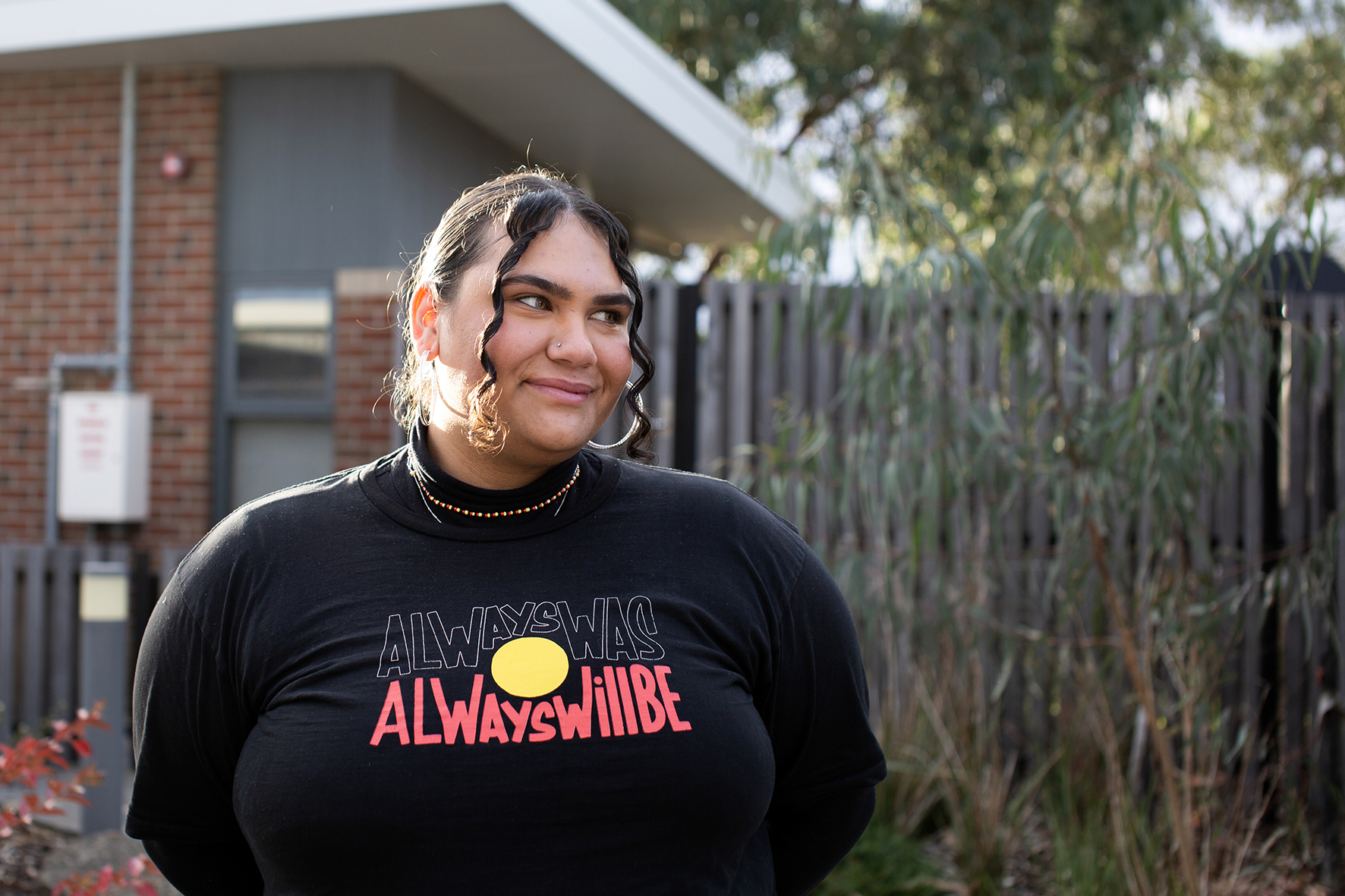
Studying youth work and youth studies, Ruby has always been driven by a desire to give back to her community.
Being a young First Nations woman,
I have always wanted to give back to my community and my people
– working alongside young First Nations people by helping them thrive, develop and grow.
Ruby is passionate about challenging the generalisations and stereotypes often associated with First Nations people.
As First Nations people, we are often generalised and stereotyped. I want to show them that we are none of those things and that is not what young mob are destined for. They are destined for bigger things.
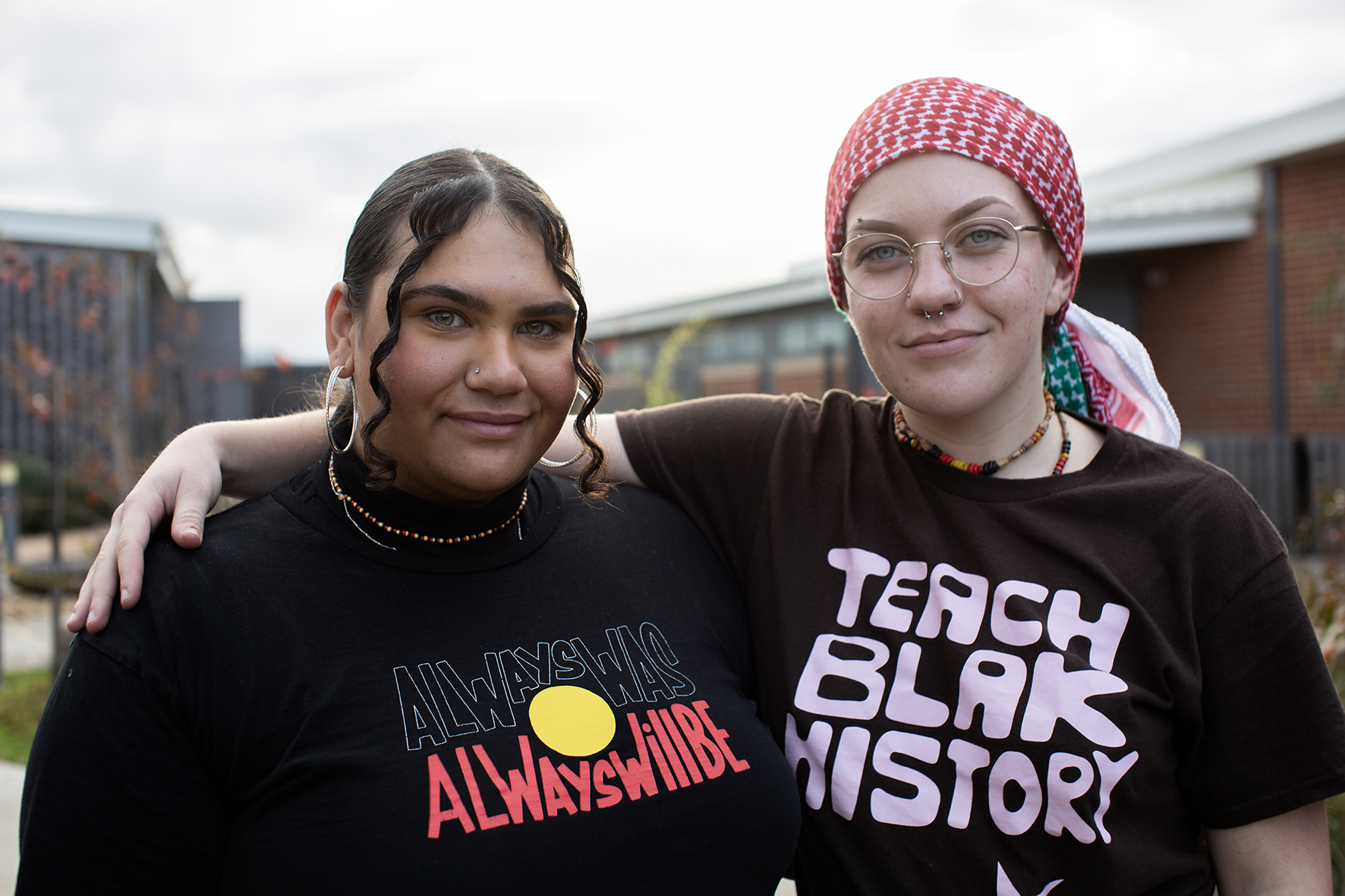
Her cadetship highlights the power of combining education with practical experience, cultural advocacy and community service. Her dedication to empowering First Nations youth and breaking down stereotypes is inspiring and vital for the growth and development of the wider community.
Ruby’s story highlights the importance of work placement programs offered by AFL SportsReady in partnerships with organisations like Hope Street Youth and Family Services.
Cadetships provide young people with the opportunities and support they need to succeed.
Work at Hope Street Youth and Family Services Thomastown makes a tangible difference. Demonstrating the significant impact that dedicated, culturally aware professionals can have in youth work.
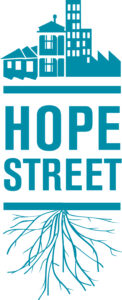
Hope Street Youth and Family Services is a leading specialist in youth homelessness in Victoria, extending its reach from Melbourne’s Northern and Western regions to non-metropolitan areas lacking dedicated services.
With over 40 years of experience, Hope Street offers targeted and holistic programs for young people, including young families. These include:
– Outreach support to assist those at risk of homelessness in meeting immediate needs and connecting with services
– 24/7 crisis accommodation with specialist support
– Supported transitional accommodation focusing on skill development, education, training and employment
– The Hope to Home program, aids young people and families in securing private rentals
Hope Street also advocates for systemic improvements and contributes to research addressing the structural causes of youth homelessness.
During Homelessness Week 2024 the Hope Street team; Sue Scott acting CEO, Gary Humphrey, Aoife Fitzpatrick, Jamileh Hargreaves and Katie Hooper attended the Victorian Homelessness network event - Houses at Parliament. 6000 origami homes were on display at Parliament of Victoria as part of Homelessness Week 2024!
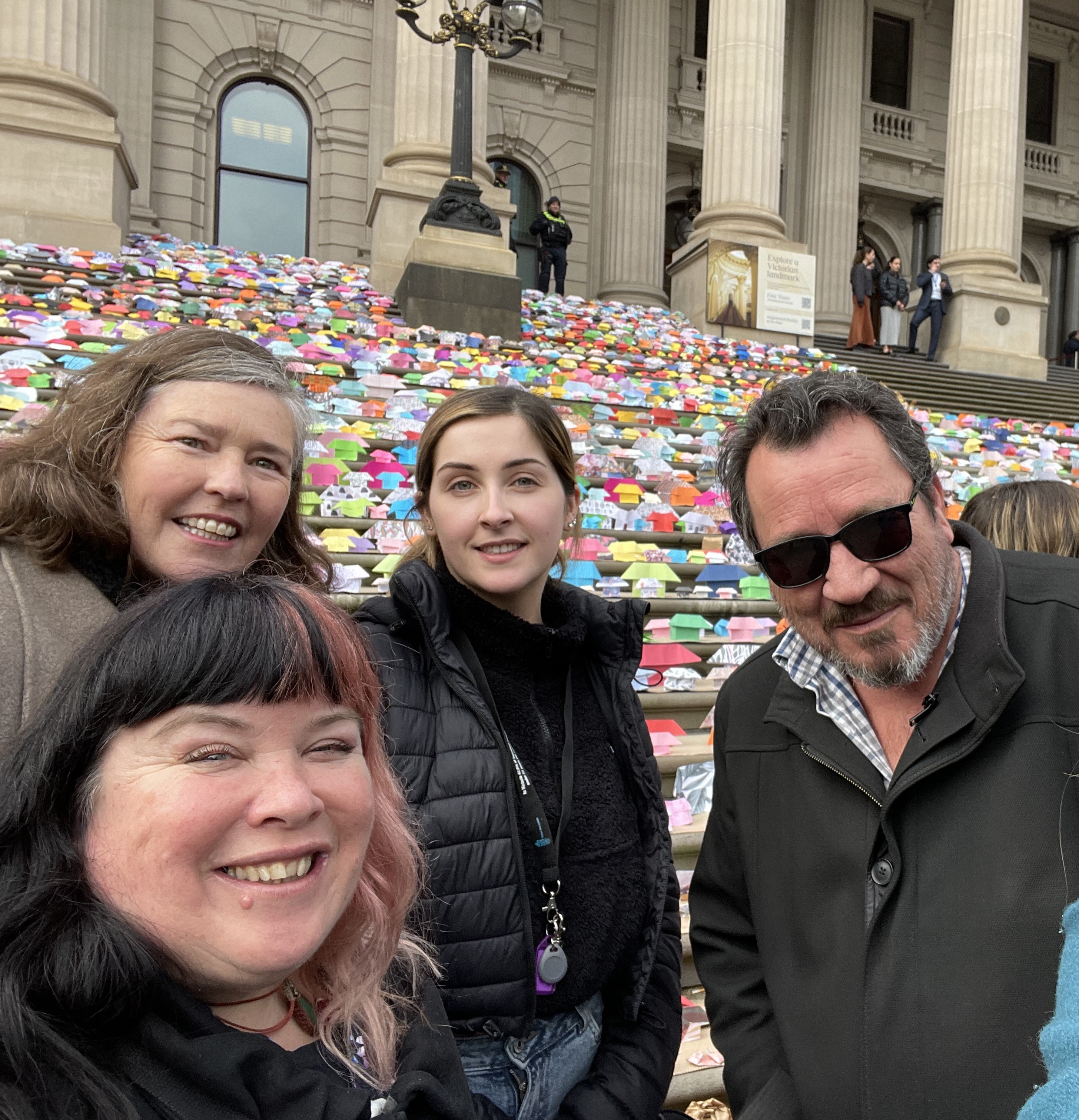
This is a 10 per cent representation of the 60,000 more social houses needed to end homelessness in Victoria.
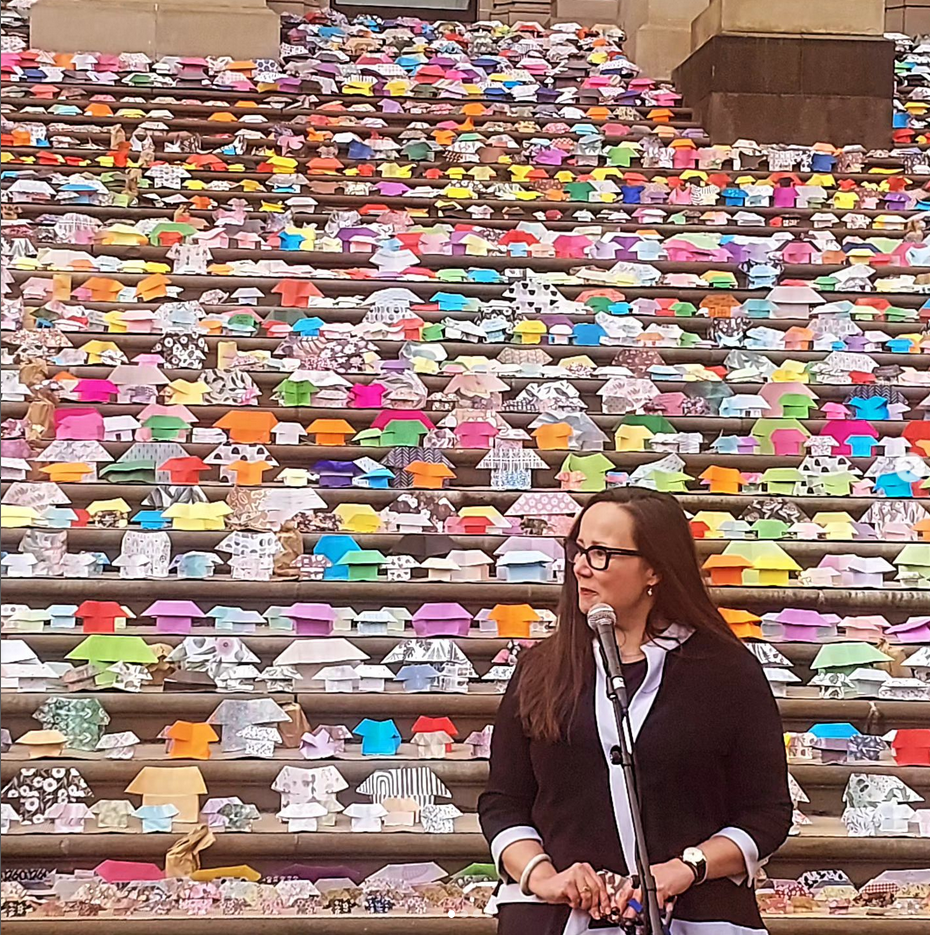
The event was also attended by the Council to Homeless Persons, CEO Deborah Di Natale and her team, Housing and Homelessness Minister Harriet Shing MP as well as Nina Taylor MP, Ben Carroll MP, Steve McGhie MP, and passionate advocates with lived experience, members of the public about housing solutions, community housing providers, homelessness support agencies and leaders in homelessness and housing policy.
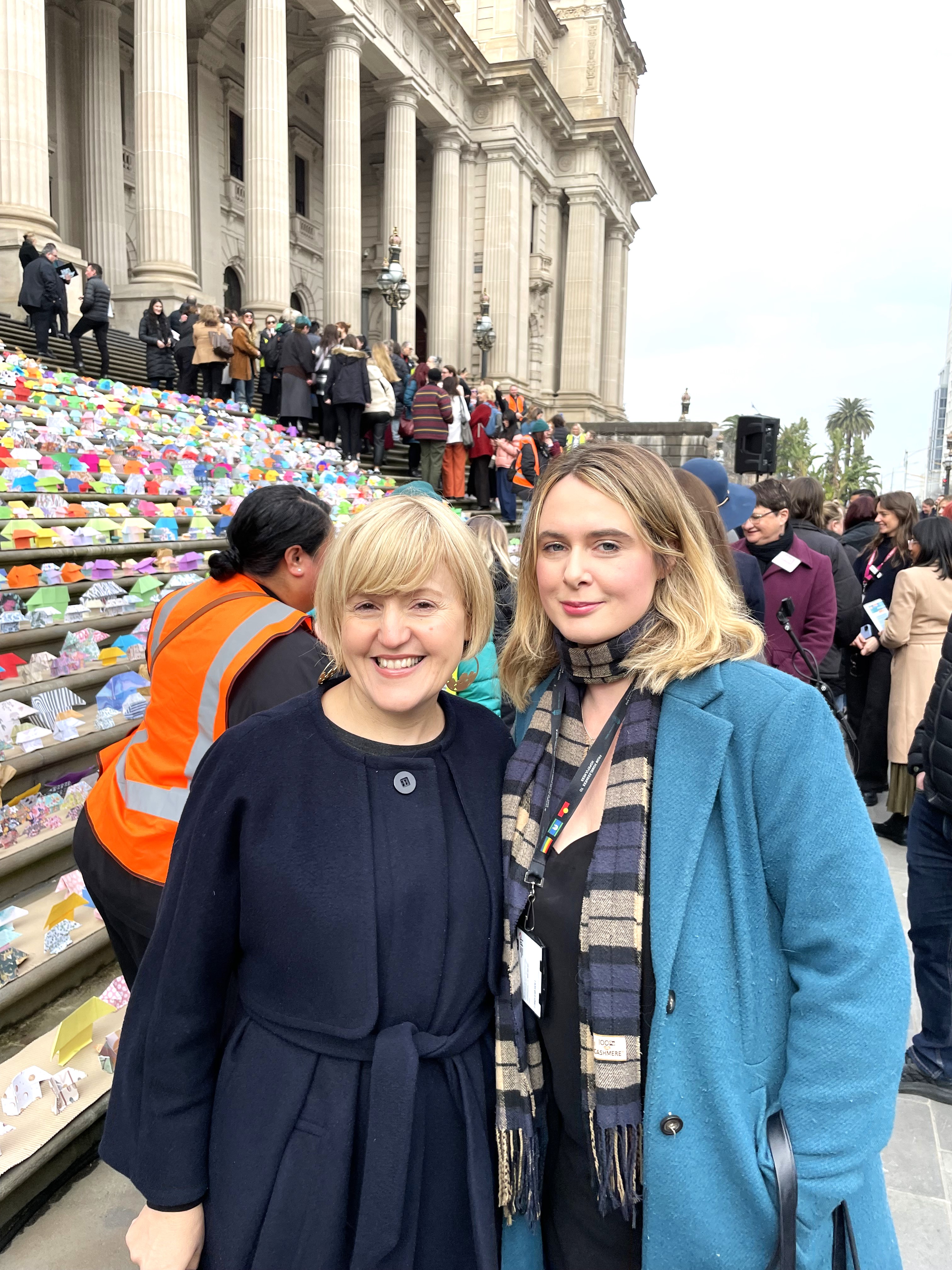
Hope Street were able to have valuable discussions with Council to Homeless Persons CEO Deborah Di Natale about the importance of advocating for youth and child housing solutions.
As the community gathered together on the steps of Parliament, Hope Street were able to stand in solidarity with industry leaders and lived experience advocates on the urgent need for more social housing.
It was also a highlight speaking with Nina Taylor MP about housing and homelessness as a priority area for the Victorian Government.
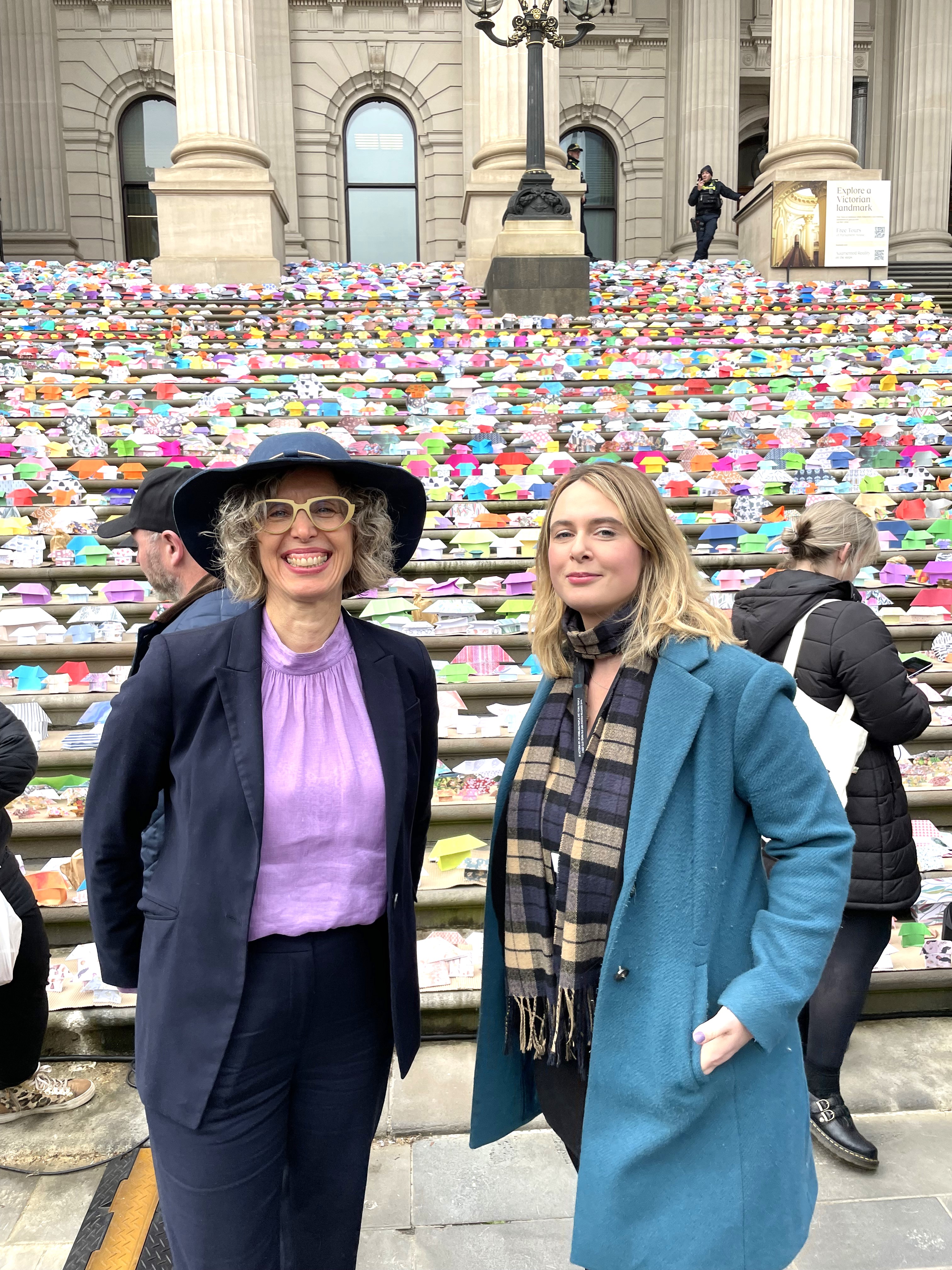
Through ‘Homeless Action Now’, Hope Street continues to provide dignity and support for young people and young families experiencing homelessness. Ensuring that young people and young families have access to housing is a priority for Hope Street and this is underpinned by community collaboration and Aboriginal cultural safety.

Hope Street will continue to advocate as we strive to achieve its vision for a society in which all young people and young families have a safe place to call home.
Update on the First Response Youth Refuge in Whittlesea: Walls up! Roof is on!
“Hope Street First Response Youth Service in the City of Whittlesea will assist and empower young people and young families who are experiencing homelessness, to secure a safe place to call home and begin to rebuild their life.”- Donna Bennett, CEO, Hope Street Youth and Family Services.
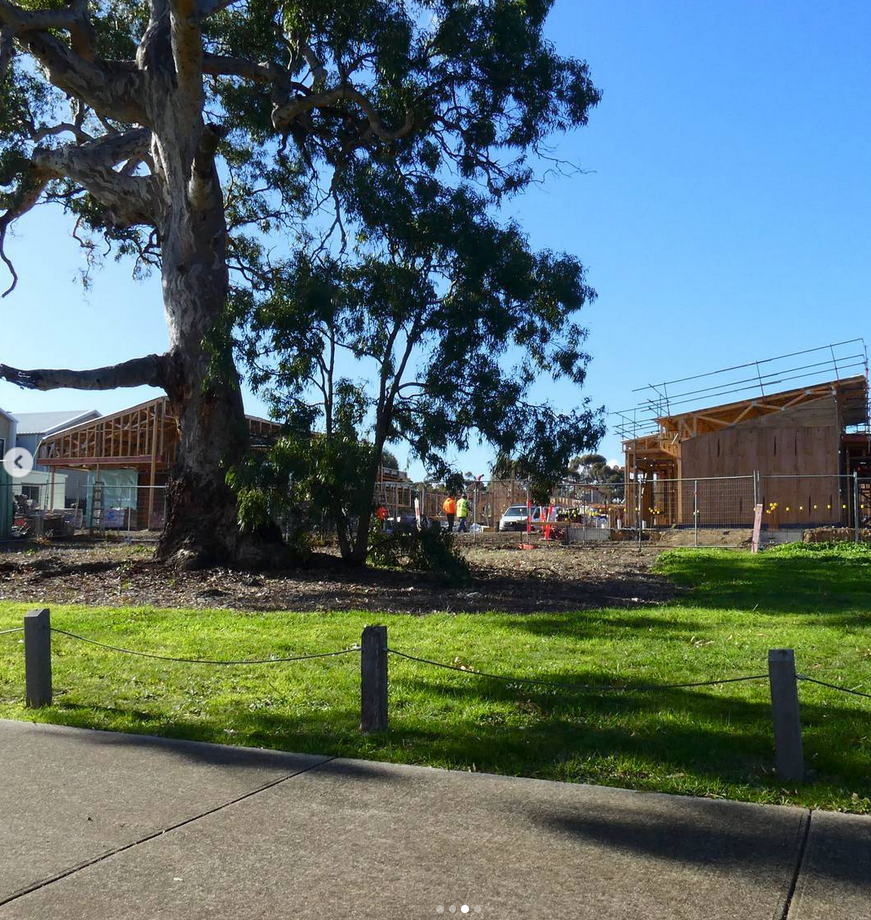
Hope Street and local partners are making a real impact with the development of the First Response Youth Refuge Service Centre in the City of Whittlesea. In July 2024, the frame and roof have been completed and the bricks and window frames have been added to this build. Team Leader, Bianca Nash and Program Manager, Hang Pham visited the building site to check out the progress being made, and they are both busy coordinating the interior design and furniture for the youth refuge. Hope Street is currently recruiting for a suite of new youth residential support workers and case managers to support young people and young families that stay at the First Response Youth Service Refuge Service Centre from the end of the year.
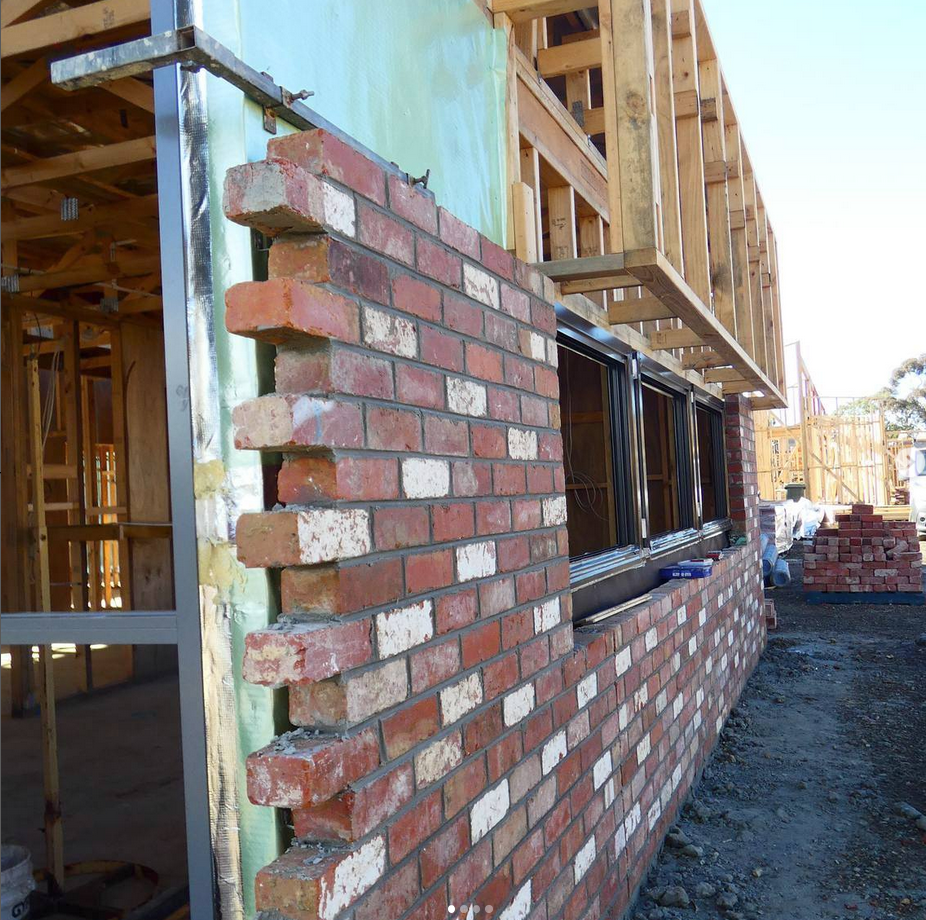
This refuge will be home for over 100 young people aged 16-25 years on Wurundjeri country in the City of Whittlesea area. The refuge building has bedrooms for 8 young people on any one night for up to a 6 week stay, and the two-family units that can be home for up to a 3 month stay for young families. One of these family units will be a dedicated Aboriginal unit focusing on connection to community and culture. The strengthened partnership with Margaret Tucker Hostel will ensure that best practice and specific resources are being integrated into service delivery for all Aboriginal and Torress Strait islander young people and their children as part of the Hope Street model.
As at the start of July 2024:
- Staff recruitment is underway.
- Frame and truss are completed on all 3 buildings.
- Roof is being put on.
- Brick work is progressing well.
- Window frames are set.
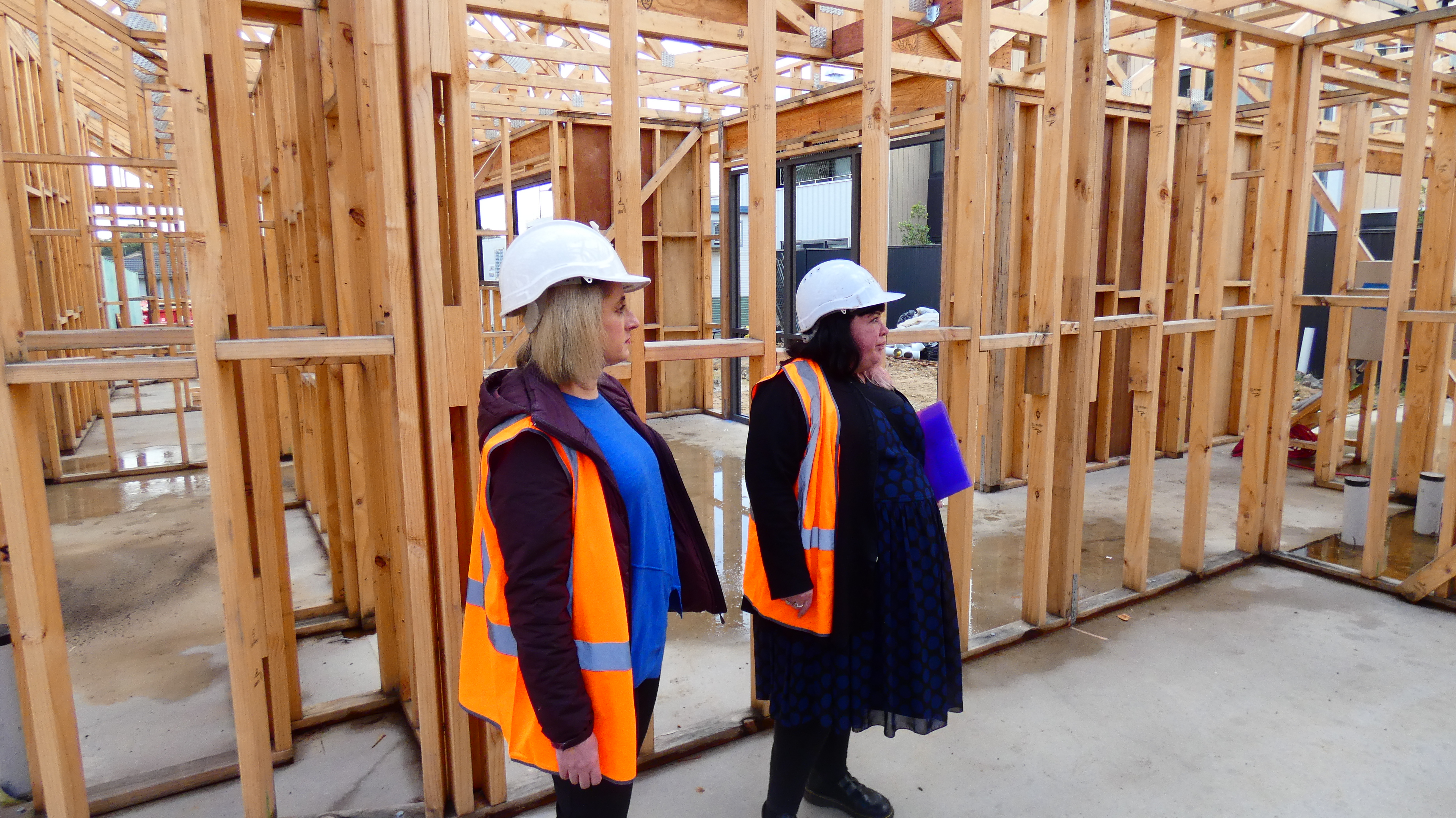
Each day we are one step closer to opening the site, which will occur later in the year. Hope Street and both the Victorian and local Government have partnered to deliver the First Response Youth Refuge in Melton and the upcoming new location in the City of Whittlesea to tackle the high levels of youth homelessness in Victoria. This new build project has been made possible thanks to our many supporters and partners.
A special thank you to The Property Industry Foundation for their investment in providing these safe emergency beds for young people and young families in the community. The Property Industry Foundation has provided $192,000 in beneficiary funding to Hope Street First Response Youth Service – supported crisis accommodation in Whittlesea, Victoria.
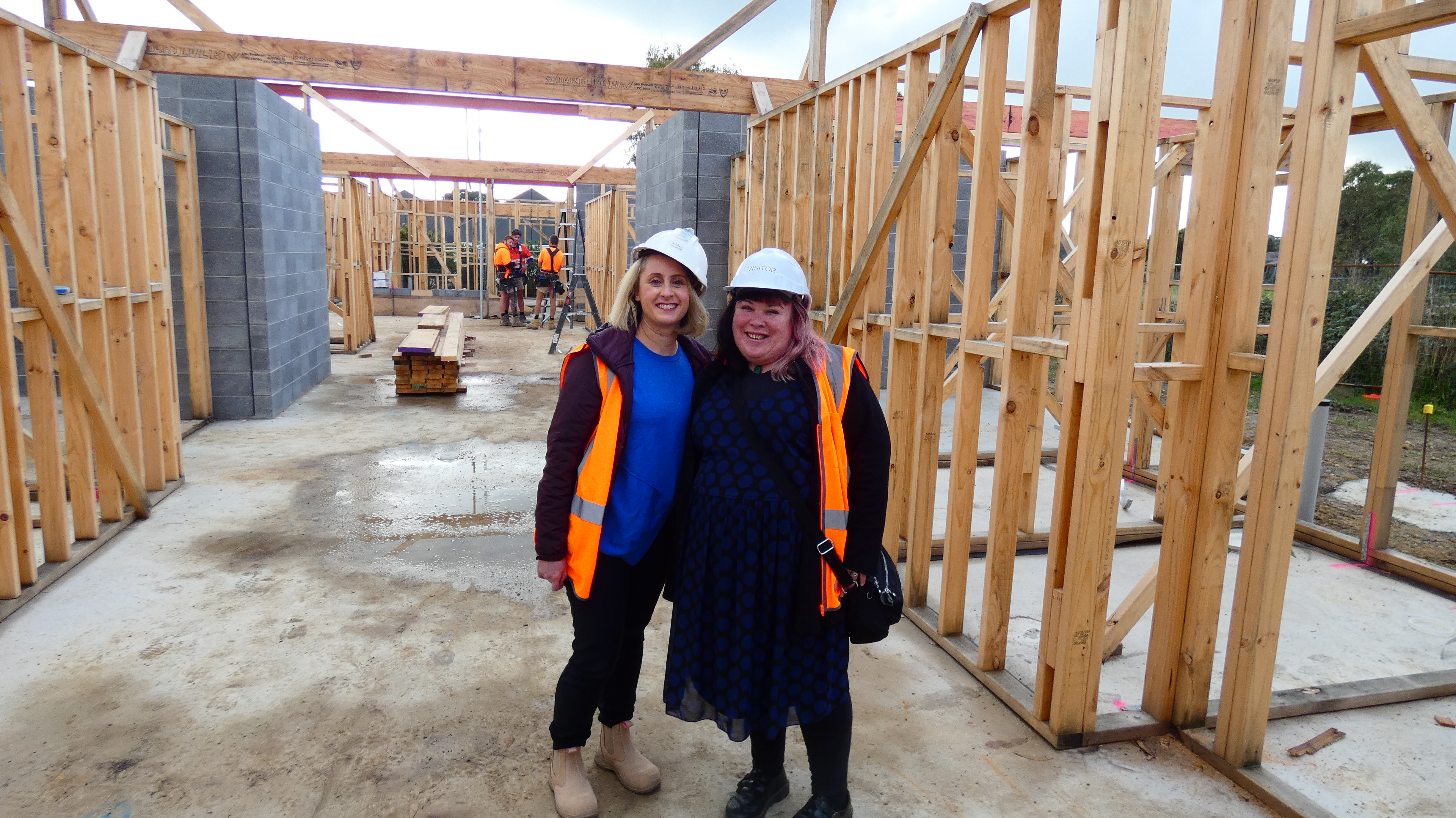
The centre is also supported by State Government Homes Victoria Big Build Youth Housing Grant, a City of Whittlesea land lease, and Mirvac, who will donate landscaping. The Mirvac team were again able to visit the site and see the progress that has been made and plan and develop the landscape program. Harvey Norman have also donated $2000 to supply the youth refuge with some much-needed kitchen appliances for young people.
This July State Member for Melton, Steve McGhie MP, State Member for Sunbury Josh Bull MP and State Member for Broadmeadows Kathleen Matthews-Ward MP were able to tour Hope Street’s First Response Youth Refuge in Melton. This visit was an opportunity to showcase to Members of the Allan Government how Hope Street is providing therapeutically designed accommodation with wrap-around support for young people and young families experiencing homelessness.
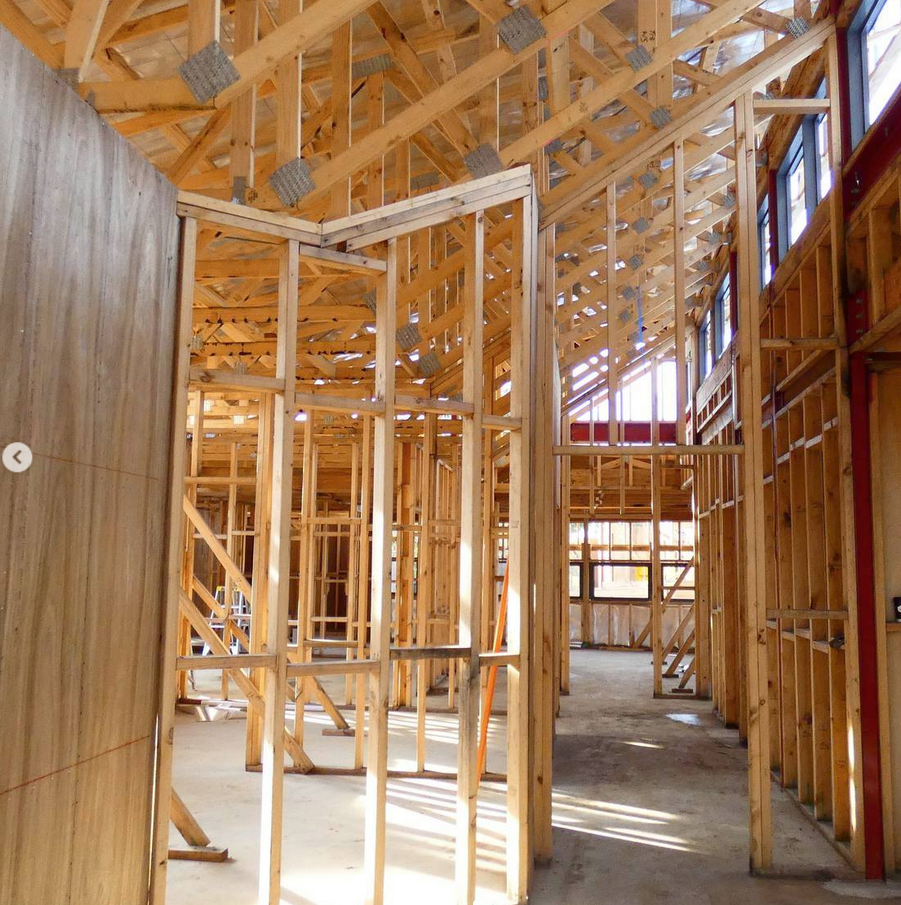
The Hope Street team is excited for the grand opening at the end of this year! If you’re interested in attending the opening of the new Whittlesea First Response Youth Refuge, please contact Katie Hooper at Hope Street. Hope Street will be hosting a grand opening for partners, members of the community including neighbours, local MPs, journalists, members of the City of Whittlesea council and key allies in the community services sector responding to youth homelessness.
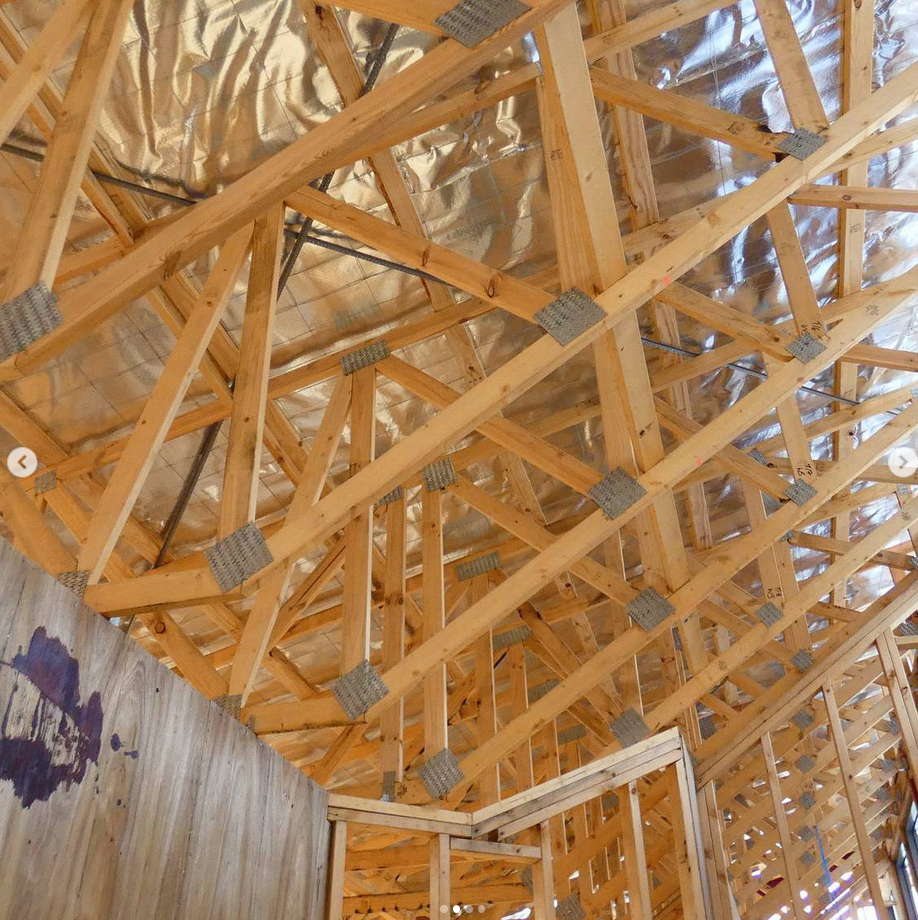
Our vision is that society values and meets the needs and rights of young people. Hope Street focuses on providing solutions to youth homelessness through service development in growth corridors in Melbourne.
Housing as a Human Right – Hope Street embraces crossbench advocacy on housing.
“Housing as a human right needs to be adequately addressed by an investment in the social infrastructure and service delivery that protects Australia’s largest cohort, young people and young families, experiencing homelessness.” Sue Scott, Hope Street Operation Manager.
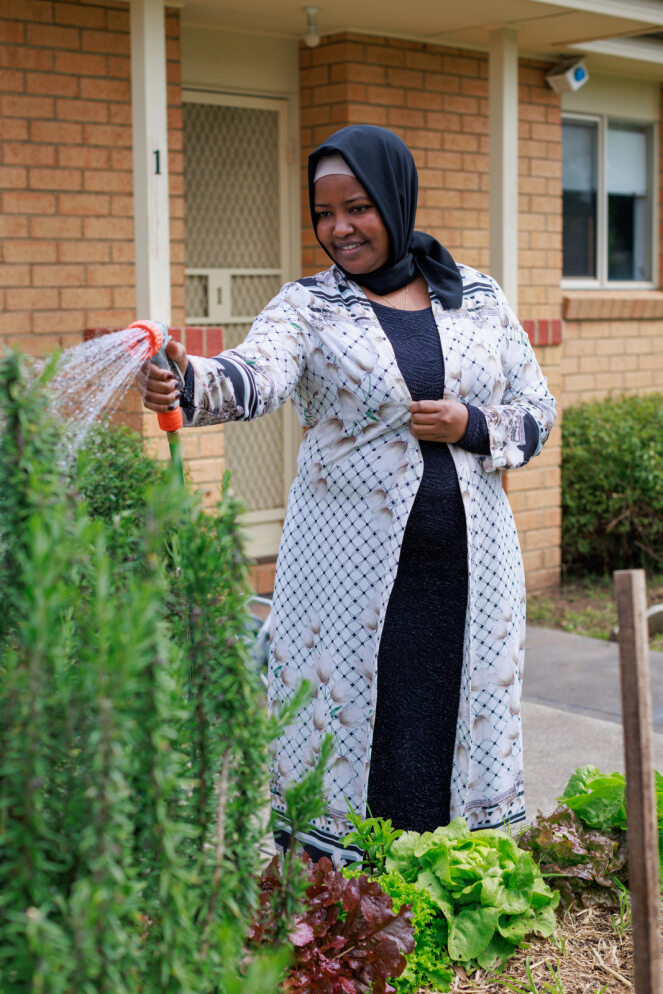
Australia is grappling with the cost of homelessness in emergency rooms and in the justice and welfare systems. Youth homelessness is at crisis levels in Australia. 122,494 people were estimated to be experiencing homelessness on Census night in 2021. Nearly a quarter (23.0%) of all people experiencing homelessness were aged from 12 to 24 years (28,204 people). 14% of homeless people in Australia are children under 12. 22% of the young people that access Hope Street Youth and Family Services according to the 2023 Annual Report have experienced family violence. Aboriginal and Torres Strait Island young people are 10x more likely to present to homelessness services. Being homeless and young has life-long consequences.
Sleeping in cars. Couch surfing. Rough sleeping. Living in overcrowded dwellings. Staying in environments that are unsafe and puts young people at risk of exploitation and abuse. This is the reality for Australia’s most vulnerable children and young people. Children and young people experiencing homelessness have barriers to accessing basic needs such as food, hygiene, healthcare, education, community and cultural connection, safety and comfort which further disadvantages them.
As Chair of the Human Rights Committee, Labor MP Josh Burns, has been a strong advocate and ally in terms of providing a platform for young people who have a lived experience of homelessness. A call from the Australian Human Rights Commission has detailed a list of rights that should receive legislative protection.
The Human Rights Act recently brought forth by Josh Burns MP is an opportunity for Australia to uphold treaty obligations that housing is a human right. The Housing Australia Future Fund has not allocated or outlined specific funding for young people and children to protect them from experiencing homelessness. Not recognising youth homelessness as a cohort shortchanges the states and territories that are currently funding overwhelmed services.
The upcoming bill - the National Housing and Homelessness Plan put forth by Kylea Tink MP and Senator David Pocock - recognises that housing is a human right. The way forward for children and youth is a national framework specific for housing young people and children to protect their rights and secure a better future for these vulnerable Australians. This should include wrap-around service support to help them achieve independence in a trauma informed setting.
Australia has Treaty obligations on the Convention on the Rights of the Child to uphold housing as a fundamental human right and protect children and young people from experiencing homelessness.
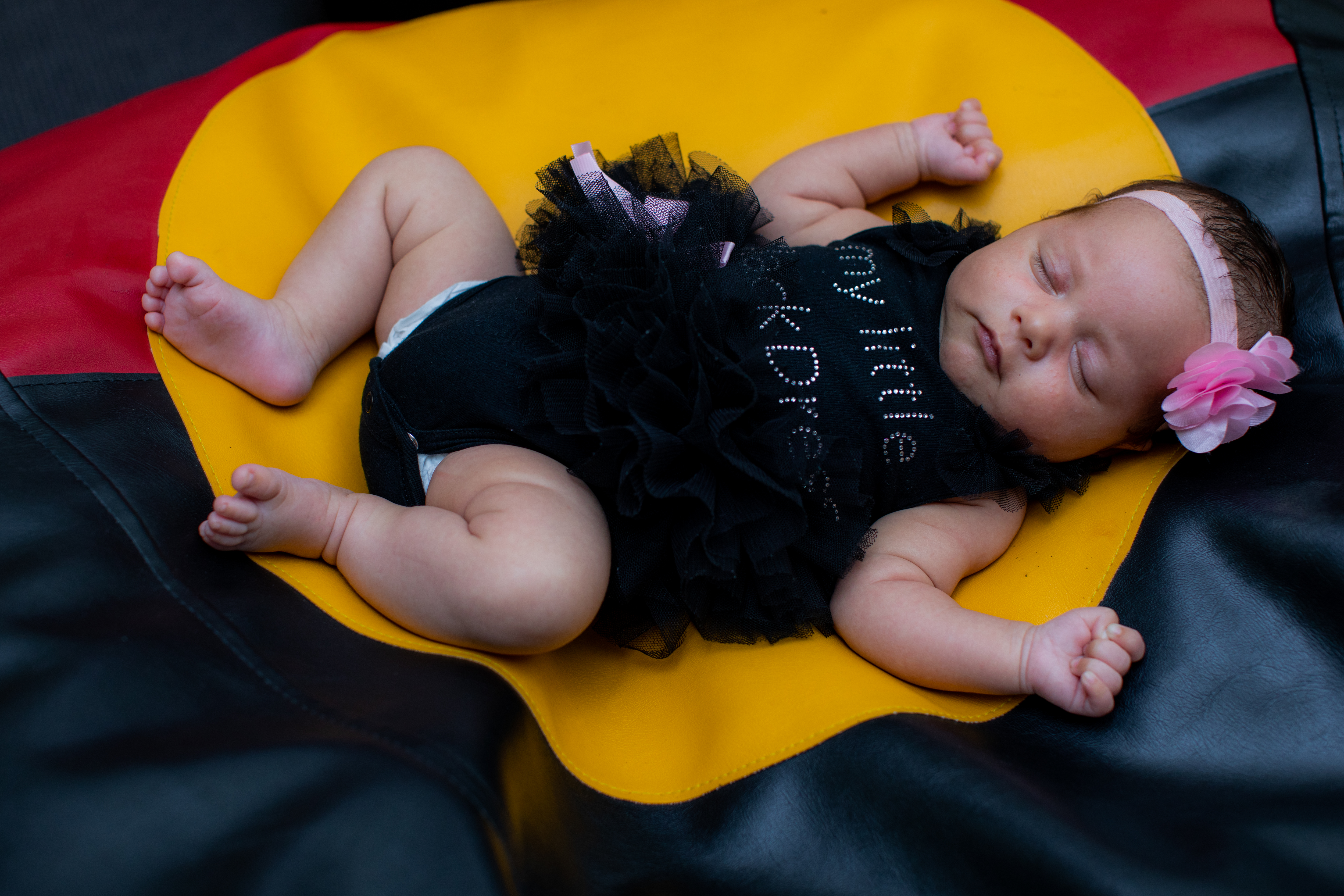
The social and economic cost of not upholding this right is detrimental to our nation. Being homeless as a young person creates significant barriers to accessing their rights to safety, education, employment, healthcare and connection to community. Furthermore, it places significant ongoing costs on the community. The bill would require current and future governments to develop, implement and maintain a 10-year National Housing and Homelessness Plan in line with legislated objectives, including improving housing supply, affordability and ending homelessness. At its heart is the goal of ensuring everyone in Australia has an adequate home. Recognising “the right to adequate housing is a fundamental human right” is one objective of the law.
Children and young people should not be ignored. A youth specific framework to tackle homelessness is needed. It should recognise young people and children as requiring the support that protects and empowers them to become functioning members of society. It should uphold their human right to housing and education. For young First Nations people it must include self-determination and connection to culture.
Currently there is no Government campaign that provides information on how to access homelessness services for vulnerable young people and children. Children and young people who find themselves homeless as a result of family violence, abuse and or neglect have limited resources to access the housing and support they need.
The cost of homelessness and the impact it has on tens of thousands of young Australians – the future of this nation – is devastating and can be resolved by legislative reform that protects their rights to housing. Communities across Australia need the Federal Government to act on this. The social infrastructure of Australia is its people, and the potential of its young people is at serious risk due to a lack of safe and secure housing options
Housing is a fundamental right which the Australian government has ratified under the Convention on the Rights of the Child and must honour it – as our highest court, the Teoh Case reaffirmed this in 1994. The Teoh case is still in operation, and it is still binding for Australian Government to uphold under the Convention on the Rights of the Child. And yet, across Australia, child and youth homelessness is widespread and growing.
There is an opportunity now for Australia to intervene effectively and early to ensure that children and young people can access safe and secure housing through a responsive social and community housing system. There is now an opportunity and an obligation for Australia to intervene effectively.
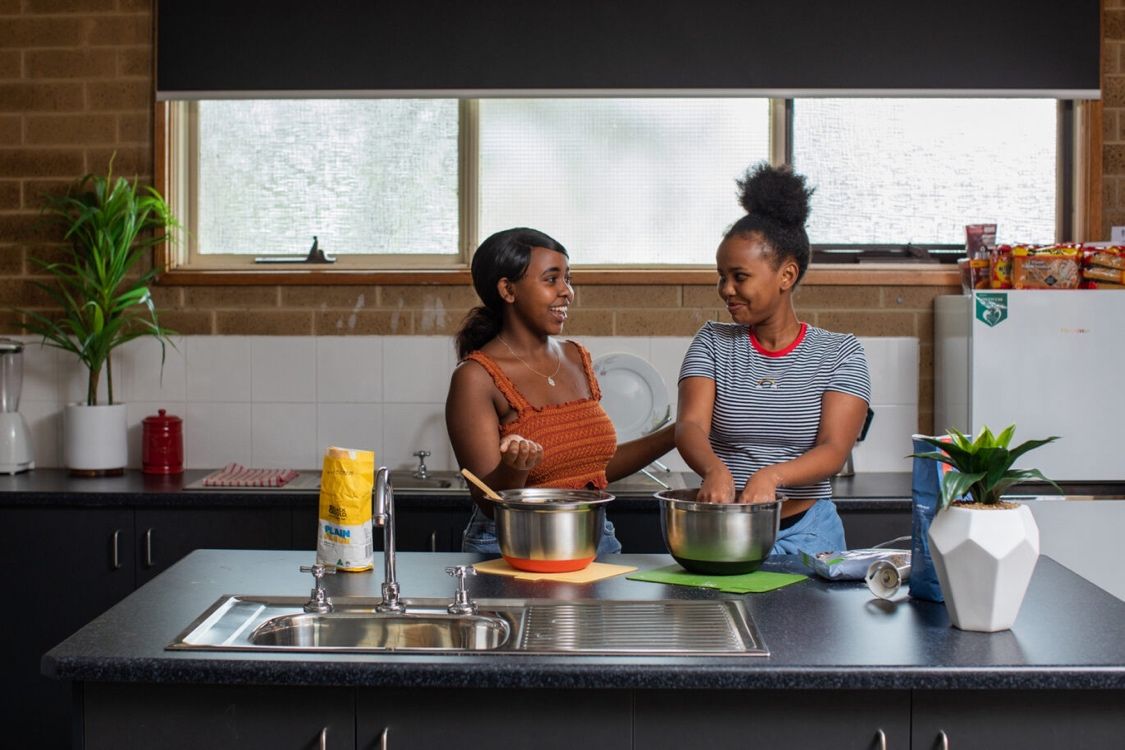
Such a response, if enshrined in legislation as a right to housing, would ensure that young people and children experiencing homelessness can access the wrap-around support they need to maintain their education, connection to community and opportunities to participate in learning, training and eventually a secure workplace.
Without a safe home, young people face barriers to access their right to an education. Being homeless makes it difficult to find or maintain employment and training. The pathway to a better life is hindered with barriers. Without a secure home, the capacity to navigate primary healthcare services and find a suitable General Practitioner (GP) becomes extremely difficult. As a result, and often due to transience, children and young people are unable to find mental health support or suitable counselling. Obtaining services like Centrelink and the NDIS is equally compromised.
In the words of former Human Rights Commissioner and long-term advocate for young people experiencing homelessness, Professor Burdekin, ‘homelessness is primarily and fundamentally an issue of human rights.’ Federal reform to address housing as a human right has been advocated by Professor Burdekin and Hope Street Youth and Family Services (Hope Street) Chief Executive Officer, Donna Bennett, in the latest youth-specific edition of Parity magazine.
Underpinned by this call to action is the practical experience of Hope Street’s service delivery in responding to child and youth homelessness. The bill provides an opportunity for the Australian Government to learn from practical frontline experts on child and youth homelessness and how to develop solutions to this national crisis.
The Hope Street’s response to youth homelessness is to recognise the integration of wrap-around supports that young people and their children need to go from surviving to thriving. Building a sense of community connection, security, comfort and safety, alongside practical goals in a therapeutic setting empowers young people to access community services and plan their future.
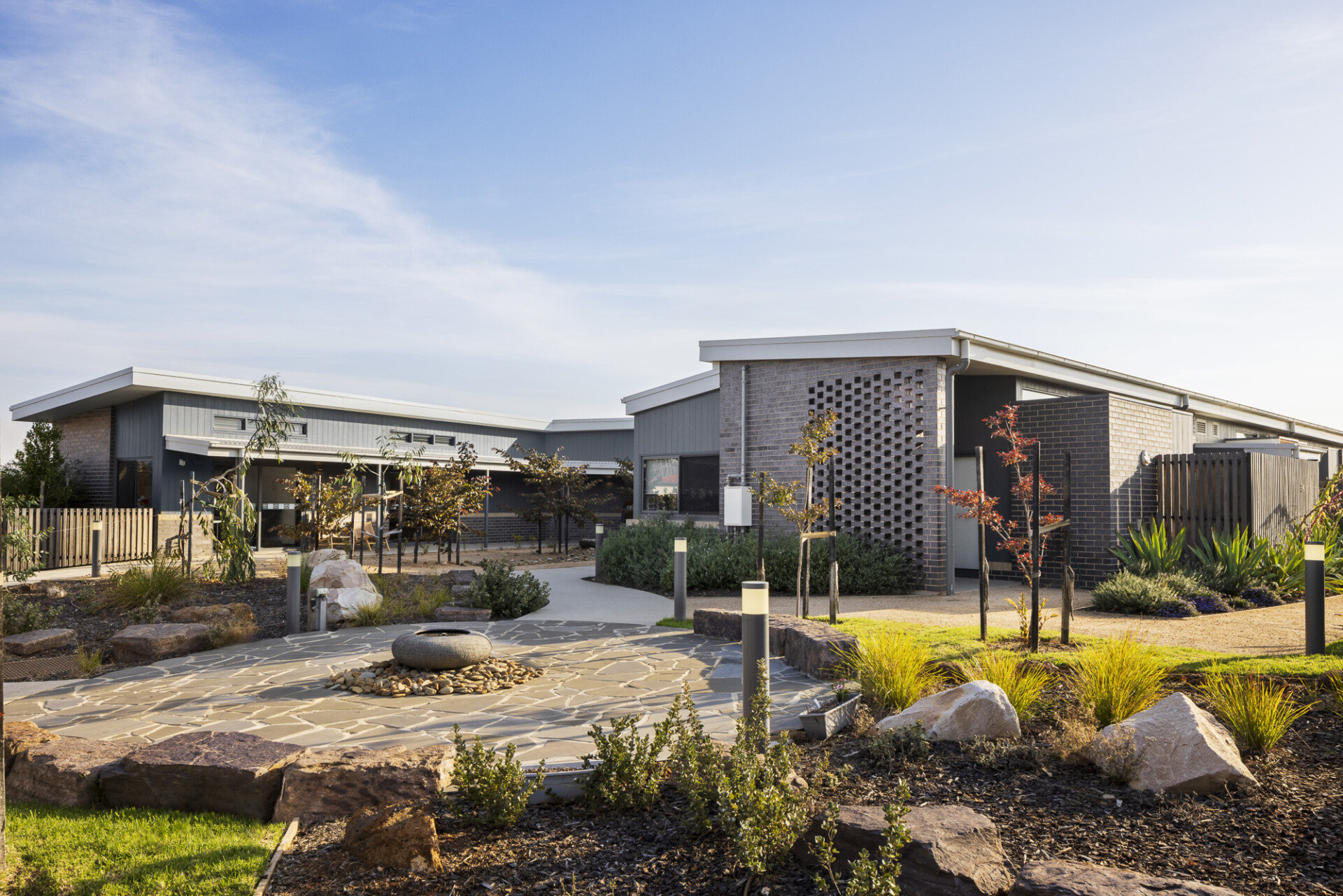
As a continuum of services, Hope Street provide assertive outreach programs for intervention to those at risk of or experiencing homelessness, as well as crisis accommodation and transitional housing options all with wrap-around services.
For young people that enter crisis accommodation and transitional housing at Hope Street they are supported with 5 key domains: education, employment and training; healthcare and mental health counselling; tenancy management and budgeting; independent living skills; and community connection.
These include, for example, support to develop core skills in accessing social services, including Centrelink as well as developing parenting skills, a driver's licence, a bulk billing GP, tenancy management, budgeting, rental applications and developing goals towards independence such as employment, training and education and navigating primary healthcare providers. Building a sense of community connection, security, comfort and safety, alongside practical goals in a therapeutic setting empowers young people to access community services and plan their future. This tailored service delivery is trauma informed and matches the obligations we are committed to uphold the foundation of the Convention on the Rights of the Child.
Hope Street has the resources to ensure that best practice approaches to youth and child homelessness can be advocated to all levels of government. Hope Street will continue to advocate for young people and children experiencing homelessness, as well as provide nation leading accommodation and services to uphold housing as a human right.
Despite our treaty commitments, child and youth homelessness is widespread. The opportunity is now to intervene effectively. Investing in early intervention to prevent homelessness from reoccurring will fundamentally be more cost-effective than having to fund the myriads of emergency services that pick up the pieces.
In recent years the Ian Potter Foundation vindicates the finding in the Burdekin and subsequent inquiries to demonstrate that the social return on investing in youth housing delivers an economic return of $3 for every $1 dollar invested. This has been proven time and again that early intervention is much more cost effective than picking up the pieces. The human rights violations and the economic impact on young people and children in Australia is a national disgrace.
Given its wealth surely Australia cannot afford to sacrifice thousands of young people at the altar of a current housing system that is clearly failing the future of the nation. A fair go for those that are vulnerable in our community is arguably part of the intrinsic values of Australian society.
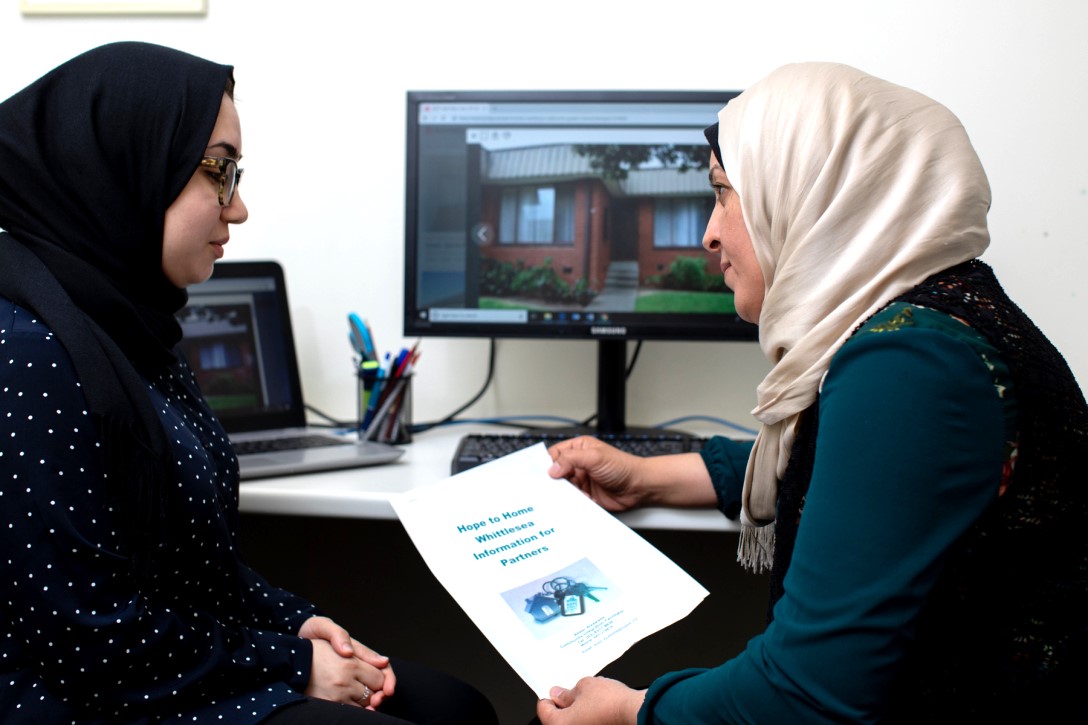
Partners eNewsletter
Sign up to have our free quarterly Partners eNewsletter delivered to your inbox and learn more about how Hope Street and its partners are supporting young people and young families who don't have a safe place to call home.
Upcoming Events
Latest News
Popular
Featured Stories
Homelessness - Facts & Stats
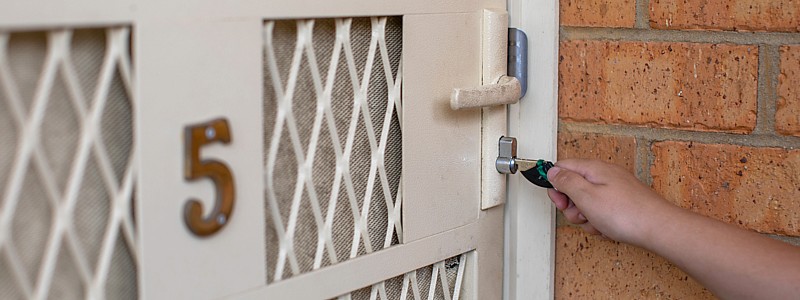
FEATURED PILOT PROGRAM: Hope to Home in Whittlesea
Many young people face obstacles when trying to secure stable accommodation due to no rental history, lack of affordable housing, and no employment to sustain rental leases. The Hope to Home in Whittlesea pilot program will address these issues by:
- Facilitating the transition of up to 30 young people (and their children) from the Hope Street in Whittlesea program or Whittlesea Housing into 1 and 2 bedroom units
- Providing case management once they secure private rental of these units
- Helping these young people maintain their tenancy, employment, education and training, and community connections
- Engaging the support of community stakeholders including local businesses to address barriers contributing to youth homelessness
Please contact us if you would like to become a partner and support at risk young people and young families.


